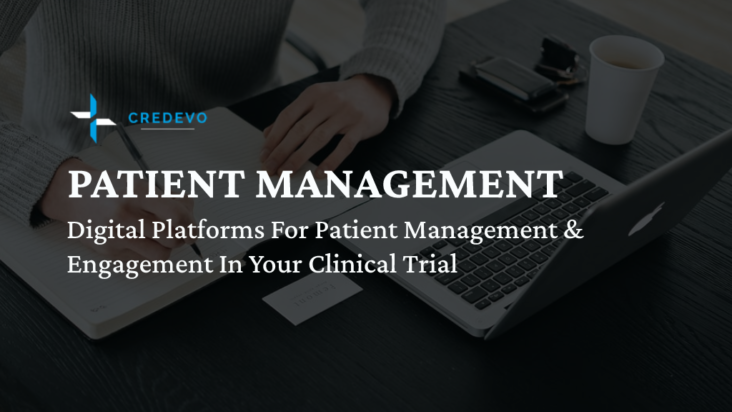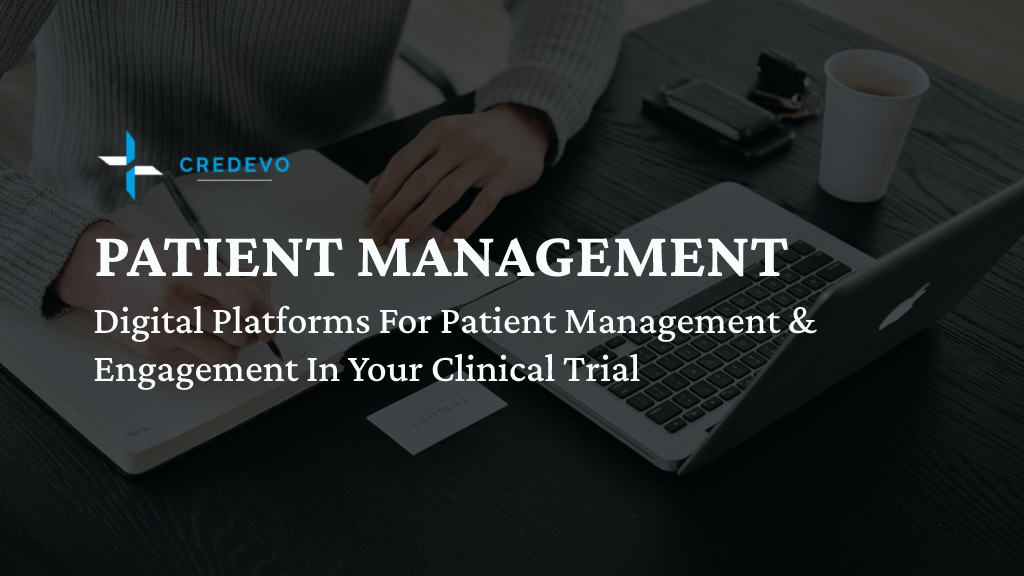Patient Engagement Software: Is It A Game Changer For Your Clinical Trial?

The barriers between IT industries and the clinical research industry is quickly blurring. Now the software tools are sorting the most difficult management tasks in clinical trials. One such challenging task in clinical trials is patient management and engagement. The patient management software very well manages and executes all patient-related tasks effortlessly.

While conducting clinical trials, traditionally, researchers used paper-based documentation and would track clinical trial participants manually. It would lead to many human errors and ensure results. Also, it would be a burden for regulators during the review. So now, the regulators are recommending researchers and sponsors utilize software tools to manage these tasks. Some regulators offer guidance documents for such software use.
Patient-related tasks during the clinical trial
While conducting a clinical trial, researchers require to perform patient-related tasks such as
- Schedule, track, and notify study visits.
- Ensure timely medications and documentation.
- Need to perform study-related regular activities such as diaries, PRO completion, etc.
- Motivate patients and retain study participants.
- Educate patients on various aspects during the clinical trial.
Effective patient recruitment and retention are the key factors in delivering a successful clinical trial. Unfortunately, patient recruitment and retention are not only expensive tasks but also very challenging to achieve for any clinical trial.
The patient experience landscape in clinical trials is evolving from traditional methods to digital platforms, wearable devices, and virtual clinical trials. Electronic consent (eConsent), electronic clinical assessment outcomes (eCAO), etc., are becoming more feasible for all the stakeholders involved in clinical trials. Along with improved patient experience, these platforms are making clinical patient engagement and management very easy at the fingertip.
Patient engagement & patient management in clinical trials
A persistent patient-focused clinical trial can positively influence crucial health-related outcomes in clinical trials. For a sponsor, better patient engagement would give better study outcomes. In many cases, patients successfully enrolled in clinical trials but often drop out during the study. It may be due to poor communication, study-related understanding, and management.
Patient engagement and management are of utmost importance in clinical trials. Traditionally researchers use paper documents to track and manage clinical trial participants, schedule visits, create patient education data, motivate patients, etc. But now, things have changed and are managed using digital platforms. Decentralized clinical trials, sensors, wearables, and advanced data and insights have bought new wings to clinical research. One can access these from anywhere on the globe.
Patient centricity
Conducting a clinical trial right from designing a treatment or another health solution centered around the patient to the trial end is known as a patient-centric trial. It helps the sponsors and patients efficiently conduct a clinical trial and bring out value endpoints. Patient management is very crucial in patient-centric trials. Omnichannel communication, timely scheduling of site visits, patient education, and motivation are some aspects of patient management.
- Patient-centric trials help patients be more aware of their condition and treatment stage and understand the trial purpose more closely using digital platforms.
- Digital platforms help educate trial participants. It reduces the number of site visits and provides immediate responses to patient queries.
- Stakeholders can learn more about the participant’s lifestyle and implement the patient-centric approach. It drastically reduces manual errors usually seen in conventional trials.
- Strong communication between stakeholders and the trial participants benefits both. It reduces patient dropout problems, helps in better collaborations, and conducts an effective clinical trial process.
Virtual site platforms & patient engagement
A virtual clinical trial refers to digitally empowered clinical trial processes. A virtual clinical trial is also known as a remote or decentralized clinical trial.
Virtual trials mean using advanced applications, electronic devices, online social engagement platforms, artificial intelligence, robotic process automation, and machine learning while conducting a clinical trial.
How Virtual/Decentralized clinical trials different from the conventional clinical trials?
Virtual clinical trials or decentralized trials are well known for cost-effectiveness. Virtual clinical trials help in patient recruitment campaigns, safety monitoring, patient education, pre-screening, and data verifications. Using digital technologies in clinical trials helps widen the pool of patients, extend patient retention, and obtain quality data.
Top three tasks that you need to manage for better patient engagement
Patients visit tracking
Visit tracking is one of the crucial factors for patient engagement. It becomes more prominent in cases where patients have to travel long distances, participants over all time allotment, and the number of study visits.
Managing it manually is challenging and many time lead to data inconsistency. Use of software technology helps reduce these burdens by easy scheduling and tracking patient visits. It also reduces inconsistencies in data capture during visits.
Medication compliance
Medication adherence is one of the biggest healthcare challenges for Investigational Medicinal Products (IMPs) in clinical trials. According to research, medication adherence rates drop by 40% within a year of clinical trial commencement and are common in all therapeutic areas. Incorrect medication or dose could lead to a medical error which is evil in clinical by following some practices as below.
- Using software tools to track medications,
- Sending medication alerts to patients timely,
- Regular interaction and communication with a patient who takes trial doses on their own and
- Educating and training patients in administering medications.
Adverse events alert
Generally, researchers identify AEs in clinical trials during scheduled visits or when participants inform investigators of unscheduled visits to the emergency department or clinic. Unscheduled visits are sometimes detected during the review of patients’ electronic health records. Delayed awareness of AEs among study personnel may jeopardize patient safety, so prompt detection of unscheduled visits is important during clinical trials.
Adverse events also influence changes in the protocols and informed consent documents, along with guiding dose administration regimens for clinical trial designs.
Here comes the necessity of building a software tool that alerts and documents AE. AE management software shall include detection, processing, and reporting.
Tracking and monitoring adverse events during a clinical trial is a fundamental component of any clinical trial. Software tools help manage and monitor adverse events (AEs) in clinical trials, particularly multi-site clinical protocols. These software tools must comply with regulatory guidelines and be easily adaptable for site staff.
These alert systems inform stakeholders, such as sponsors, institutional review boards (IRBs), or regulatory bodies about unusual and unscheduled visits of participants to hospitals and emergencies. These systems are integrated with CTMS and CRF to make more out of them. In conclusion, these alert systems can effectively improve safety reporting timelines.
Are You Looking For The Best Patient Engagement & Management Software Tool For Your Clinical Trials?
Credevo expertise provides complete guidance in clinical trial management software solutions. Provide your details below to connect with us.